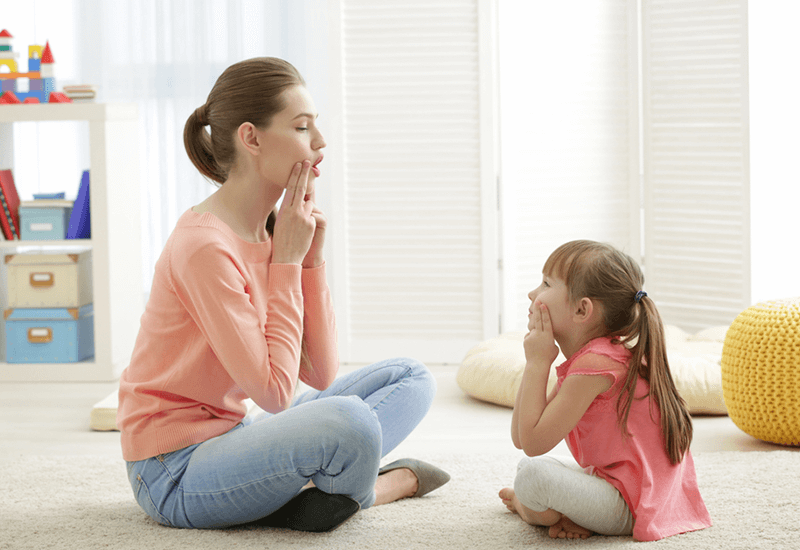Delayed Speech: Symptoms, Causes & Treatment

In the intricate tapestry of childhood development, the journey of speech unfolds at its own unique pace. While many children effortlessly transition from babbling to forming coherent sentences, some navigate a different route, encountering delays in their speech development. Understanding what it means by delayed speech, its symptoms, causes, and available treatments is essential for parents and caregivers alike.
Symptoms of Delayed Speech
The spectrum of delayed speech symptoms is as diverse as the children it affects. Often, parents notice that their child struggles to articulate sounds appropriate for their age. While some may exhibit limited vocabulary, others might find it challenging to form complete sentences. Pronunciation difficulties, persistent baby talk, and struggles with expressing thoughts coherently are all potential indicators of delayed speech.
In more severe cases, children may experience frustration or withdrawal due to communication barriers. It’s crucial for caregivers to remain vigilant and recognize these signs early on, as early intervention can significantly impact a child’s speech development trajectory.
Causes of Delayed Speech
The labyrinthine landscape of delayed speech causes is multifaceted, encompassing a myriad of factors. Genetics, environmental influences, and neurological development all play pivotal roles. In some instances, a family history of delayed speech may contribute to a child’s linguistic journey. Additionally, environmental factors such as limited exposure to language-rich environments can impede speech development.
Neurological intricacies may also be at play, as conditions like hearing impairment or developmental disorders can impact a child’s ability to acquire language skills. Understanding the specific root cause is crucial for tailoring an effective treatment plan.
Treatment Options for Delayed Speech
Embarking on the path of addressing delayed speech involves a collaborative effort between parents, caregivers, and professionals. One of the most effective interventions is pediatric speech & voice therapy. This specialized form of therapy is designed to target the unique needs of children, offering tailored exercises to enhance language skills and articulation.
Pediatric speech & voice therapy at Open Lines® employs a holistic approach, addressing not only the physical aspects of speech but also the emotional and psychological components. Our therapists work closely with children to build confidence in their communication abilities, fostering an environment where learning becomes an engaging and positive experience.
The therapeutic journey may include interactive games, storytelling, and creative exercises that captivate the child’s interest while promoting language development. Progress is monitored closely, allowing therapists to adapt their strategies to the evolving needs of the child.
The Role of Early Intervention
In the case of delayed speech, the proverb “prevention is better than cure” holds a deep resonance. Early intervention is a linchpin in mitigating the long-term impact of speech delays. Parents are encouraged to seek professional guidance at the first signs of concern, allowing for timely assessments and tailored intervention plans.
Pediatric speech & voice therapy, when initiated early, can yield remarkable results. Our therapy not only addresses existing speech challenges but also equips children with the tools to navigate the complexities of language as they continue to grow.
Delayed speech is a multifaceted journey, with each child forging a unique path. By recognizing the symptoms, understanding the causes, and embracing the available treatment options, caregivers can navigate this terrain with confidence. Pediatric speech & voice therapy stands as a beacon of hope, offering a personalized approach to unraveling the intricacies of delayed speech and empowering children to find their voice in the world. In the symphony of childhood development, every note, no matter how delayed, contributes to the beautiful melody of growth and progress.
If you’re struggling with communication difficulties, it’s time to turn to Open Lines®. Contact us via phone (212-430-6800), email in**@*******es.com, or by filling out our convenient contact form. Improve your communication skills and unlock your potential with Open Lines® Speech and Communication in New York today!
Get in Touch With Open Lines®














